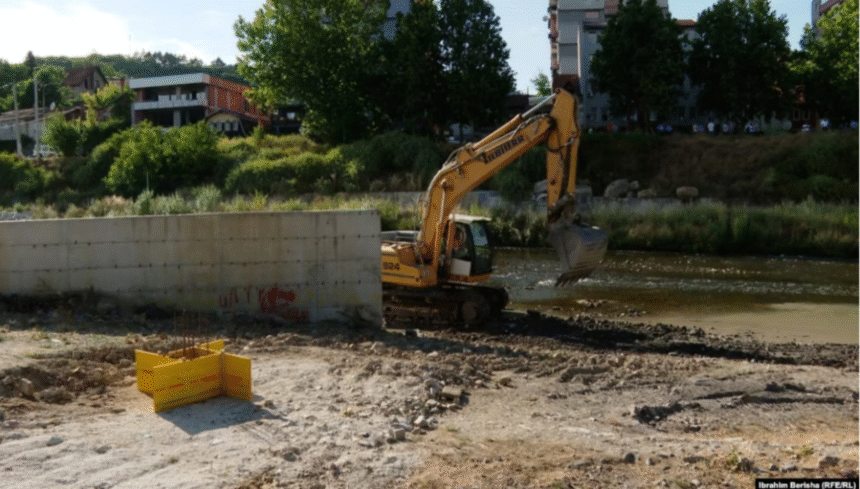The European Union has described the construction of two new bridges over the Iber River in Mitrovica as a development of both political and practical significance, emphasizing the need for close coordination and inclusive dialogue among all communities involved.
In a statement to Radio Free Europe on Monday, an EU spokesperson stressed that “each infrastructure project between South and North Mitrovica requires close coordination and dialogue among all communities.” The EU highlighted the importance of ensuring that such projects reflect the will and needs of the local population.
The caretaker Government of Kosovo has allocated approximately €3 million for the construction of the two bridges—one designated for pedestrian use and the other for vehicular traffic. According to officials, the projects are expected to be completed by autumn. Authorities in Prishtina say the goal is to promote integration and development between the Serb-majority North Mitrovica and the Albanian-majority South Mitrovica.
The foundation stones for the two bridges were laid on July 1, with the presence of Acting Prime Minister Albin Kurti.
The announcement has stirred controversy among the Serb community in the north. The Serb List (Lista Serbe), the largest political party representing Kosovo Serbs and backed by official Belgrade, has launched a petition opposing the construction of the bridges. Party leader Zlatan Elek told Serbia’s public broadcaster RTS that the initiative aims to express a unified stance from the Serb community against what they consider unilateral decisions that harm Serb interests. The petition is expected to remain open for two days before being submitted to international actors.
The new bridges are to be built near the existing main bridge over the Iber River, which remains a symbol of ethnic division and a focal point of past conflict. The main bridge has been closed to vehicular traffic for years and is monitored by NATO’s KFOR peacekeeping forces due to its history of post-war ethnic tensions. The bridge falls under the EU-facilitated Agreement on Freedom of Movement between Kosovo and Serbia.
The European Union, responding on July 7, called for the full implementation of all agreements reached between Prishtina and Belgrade, including those pertaining to the main bridge in Mitrovica. The EU also confirmed that it is currently conducting a technical assessment of the bridge’s structure and is reviewing the urban planning framework for the surrounding area. The government of Kosovo has been informed of this process.
“This assessment does not signal any change to the status quo, but aims to ensure that decisions regarding the bridge’s future are based on accurate and objective information,” the EU spokesperson said.
“The EU is closely coordinating with international partners in Kosovo on the future of the bridge,” the statement concluded.
The issue of reopening the main Iber Bridge has previously sparked tension. Last summer, the Government of Kosovo indicated that the bridge could be reopened to traffic—a move that drew concern from the international community and sparked political backlash. Acting Prime Minister Kurti has reiterated that his government will never abandon the goal of reopening the bridge for traffic.
While Serbs in North Mitrovica fear that opening the bridge would raise tensions, Albanians in the south view it as a necessary step toward coexistence and the restoration of freedom of movement.







